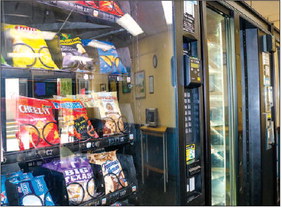An Ancient Supply Chain Solution
by Jim Greer
LW contributor
On Nov. 25, we will pause to express gratitude for blessings we received before we enjoy our feast of Thanksgiving. Originally, this holiday celebrated the grace the Plymouth Plantation colonists and indigenous people received in the form of a successful harvest.
As a show of gratitude for their blessings, the children of Israel were commanded to not harvest the outer edges of their fields. This was so they could leave overlooked grain, produce, grapes or olives for the poor, strangers, widows and orphans, so they could receive their portion. This was an inspired, ancient supply chain solution that ensured that these blessings reached all who lived near the blessed fields. Today, most of us are fortunate that we don’t have to farm to survive. For us, it’s a difficult year when we can’t get what we want when we want it for the price we want to pay. The global supply chain efficiently and affordably meets our needs and wants. Except when imported commodities sit just offshore, waiting to offload in the LA/Long Beach docks. It’s merely a small temporary inconvenience, not a biblical calamity.
Modern capitalists believe in the law of the harvest. But sometimes, we all fail to recognize that the blessings we reap far outweigh the seeds we have sown.
Living in the most blessed country the world has known has spoiled us with recurring bumper crops of blessings we have not earned. This abundance, to some is viewed as evidence of God’s grace, blessings showered on us without our having to put forth any additional effort.
Scholar, educator and religious leader Neal A. Maxwell wisely recommended that “we should certainly count our blessings, but we should also make our blessings count.”
The abundance we enjoy is more of a stewardship than a gift. We are part of a modernday blessings supply chain, and we bear the responsibility of distributing such to the poor, strangers, widows and orphans in our midst.
During the pandemic, we have become aware of those among us who suffer emotionally, spiritually and physically. Knowing this, we would do well to adopt an attitude of gratitude and graciously distribute our unearned blessings to those in need with love, compassion, caring and consideration.
This will be our attempt at gracious living.
Such graciousness can be seen in friendly greetings and pleasant smiles shared with passing strangers.
It is evident when we assist our neighbors through doors, down stairways, and in and out of vehicles.
These gracious expressions are a way of paying forward our blessings to the poor, the strangers, the widows and orphans among us.
Those that are poor in spirit and resources often live right next door to us, seemingly hidden from us in their apartments.
There are strangers in our Mutuals just waiting for a friendly knock and greeting at their door.
Many among us are currently widows and widowers, and when children and grandchildren are unable to visit during the holidays, many of us become “elderly orphans.”
As stewards of the harvest and as living links in the blessings supply chain, it is our duty to show our gratitude and act graciously toward one another.
Maya Angelou explained best it: “When we give cheerfully and accept gratefully, everyone is blessed.”






